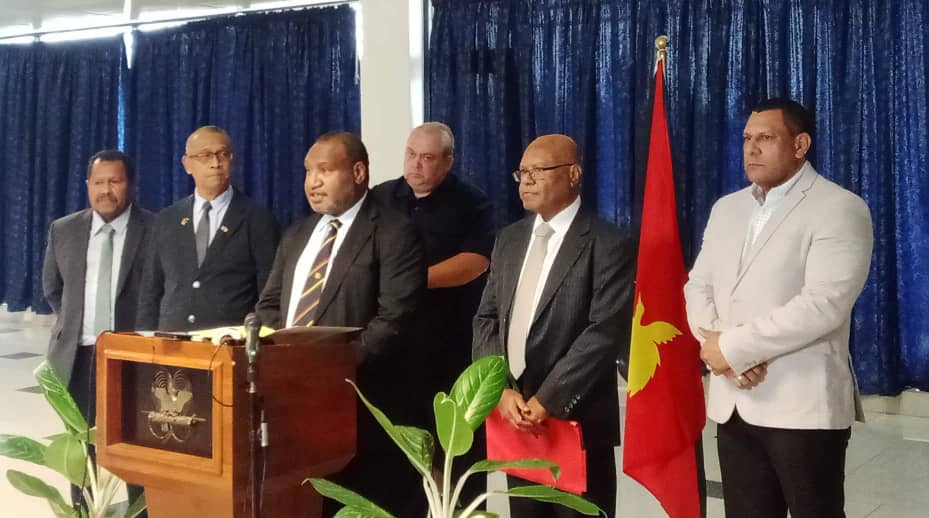The National Executive Council (NEC) has issued emergency orders under the Essential Services Act of Papua New Guinea (PNG) to drastically address the fuel crisis currently faced in the country.
Prime Minister (PM) James Marape today announced these orders, stating that the aim is to ensure the consistent supply of fuel by Puma Energy at this point in time.
Marape said these emergency orders are just short term solution to the fuel crisis in order to give time for the government to work towards are long term solution going forward.
The initial order is to have the Minister for Petroleum and Energy to issue direction to Puma Energy to continue with the fuel supply, especially for the aviation, even if it means filling up its tanks at Napanapa with supply from other distributors willing to assist with the supplies.
The second is to ask the BSP Financial Group Limited (BSP) to continue to hold Puma accounts while all parties involved continue to work towards an amicable solution, and the third is to have the Bank of PNG (BPNG), within a month, furnish to government the issues they may have with Puma that has seen the Bank unable to grant Puma’s requests.
“With respect to commercial banks having the right to hold accounts, but we ask BSP to maintain Puma’s account for one more year for us to work through and especially get the report from Central Bank, and for us as a country look at the alternate solution,” said Marape.
For a more longer-term solution to the problem, the PM said the government will be looking to enact some laws to prevent such situations in future.
“We will enact laws when we come to parliament in May,” the prime minister affirmed.
“We will pass certain laws on the monopoly of fuel supply and we open up the market and also allow for Kumul Petroleum Holdings Limited (KPHL), to be our National Energy Company that will work with subsidiaries in our country for the importation of fuel and the distribution of fuel in our country.”
The reason for this, Marape explained that it was due to an agreement that was made way back in 1999 by the State and the predecessor of Puma Energy to enable a monopoly in the fuel importation and distribution that has led to this current situation; hence, a change in the laws is required to address this going forward.
The NEC approved and endorsed these emergency orders following the recommendations put forth by the National Security Council after their meeting yesterday.
Marape concluded by saying that these emergency orders come with very tough penalties with it to be imposed on organizations that do not comply with the orders. They include very heavy fines and even imprisonment.

